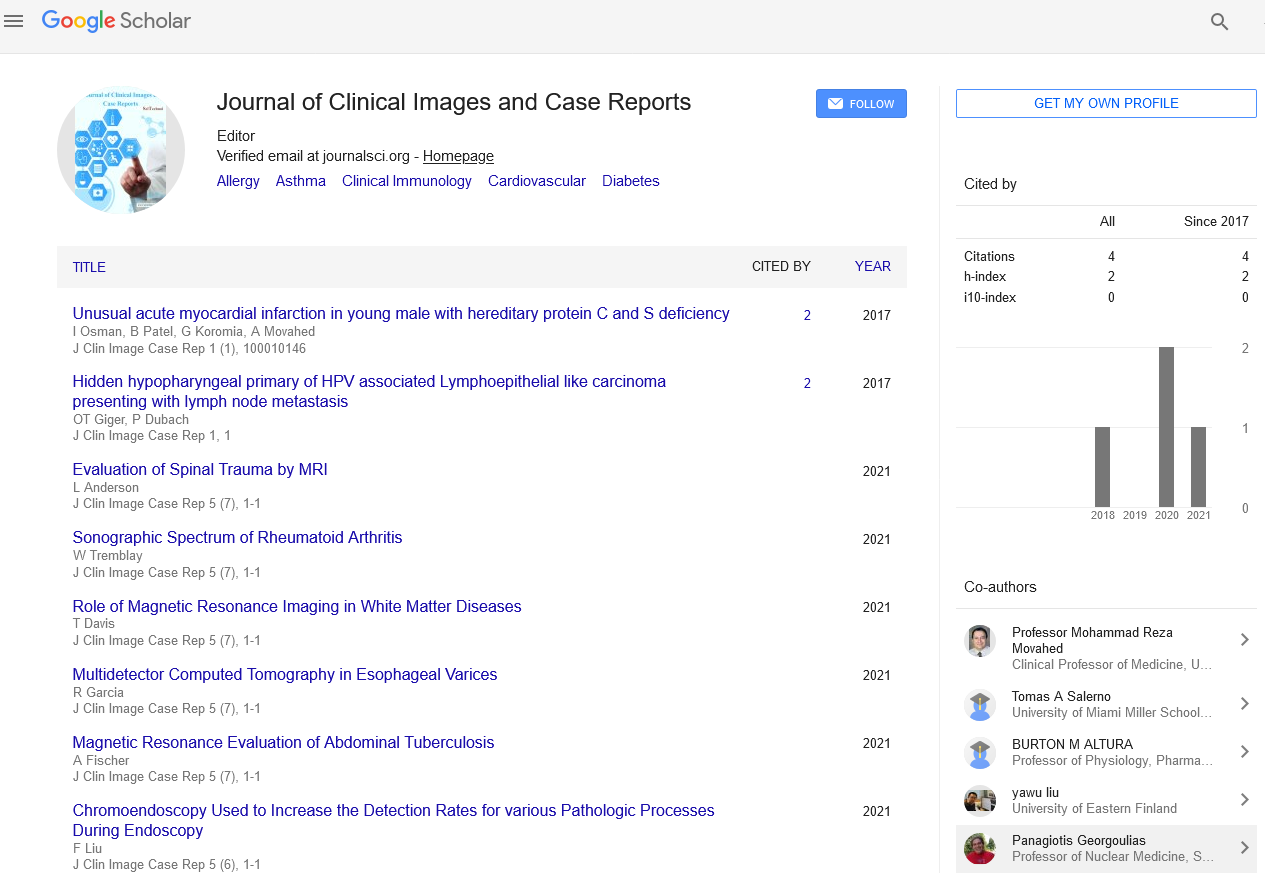Commentary, J Clin Image Case Rep Vol: 8 Issue: 4
Plant-Based Diets for Cancer Prevention and Management
Yang Zhu*
1Department of Nutrition and Food Hygiene, Zhengzhou University, Zhengzhou, China
*Corresponding Author: Yang Zhu,
Department of Nutrition and Food Hygiene,
Zhengzhou University, Zhengzhou, China
E-mail: zhuyang@gmail.com
Received date: 22 July, 2024, Manuscript No. CICR-24-150619;
Editor assigned date: 24 July, 2024, PreQC No. CICR-24-150619 (PQ);
Reviewed date: 07 August, 2024, QC No. CICR-24-150619;
Revised date: 14 August, 2024, Manuscript No. CICR-24-150619 (R);
Published date: 21 August, 2024, DOI: 10.4172/CICR.1000320
Citation: Zhu Y (2024) Plant-Based Diets for Cancer Prevention and Management. J Clin Image Case Rep 8:4.
Description
The increasing prevalence of cancer worldwide has prompted significant research into dietary interventions that may help reduce the risk of developing cancer and improve outcomes for those diagnosed with the disease. Among these interventions, plant-based diets have garnered considerable attention for their potential benefits in both cancer prevention and management. Rich in essential nutrients, antioxidants and phytochemicals, plant-based diets emphasize whole foods like fruits, vegetables, legumes, whole grains, nuts and seeds while minimizing or eliminating animal products. This article examines the evidence supporting plant-based diets in the context of cancer prevention and management, focusing on their nutritional benefits and specific dietary strategies.
Nutritional benefits of plant-based diets
Plant-based diets are characterized by their high content of vitamins, minerals, fiber and antioxidants, all of which contribute to overall health and well-being. These dietary patterns are inherently low in saturated fats and cholesterol, factors often associated with an increased risk of various cancers. Research indicates that diets high in fruits and vegetables can lower the risk of certain types of cancer, including breast, colorectal and prostate cancers.
One key component of plant-based diets is their abundance of dietary fiber. High-fiber foods, such as beans, lentils, whole grains, and fruits, play an important role in digestive health by promoting regular bowel movements and preventing constipation. Fiber has also been linked to a reduced risk of colorectal cancer, as it helps to dilute potential carcinogens and promotes a healthy gut microbiome, which may contribute to cancer prevention. Furthermore, fiber-rich diets have been associated with lower levels of inflammation, a known risk factor for cancer development.
Phytochemicals, which are naturally occurring compounds found in plants, also offer protective benefits against cancer. These compounds, including flavonoids, carotenoids and glucosinolates, exhibit antioxidant properties that help neutralize free radicals in the body, reducing oxidative stress and inflammation. Studies have shown that a diet rich in phytochemicals may lower the risk of cancer by enhancing the body’s ability to detoxify harmful substances, inhibit tumor growth and promote apoptosis (programmed cell death) in cancer cells.
Moreover, plant-based diets are typically associated with a lower Body Mass Index (BMI), which is an important factor in cancer risk. Obesity is linked to several cancers, including breast, endometrial and pancreatic cancers. By promoting healthy weight management, plantbased diets may help mitigate the risk of obesity-related cancers.
Specific dietary strategies for cancer prevention and management
Incorporating a plant-based diet for cancer prevention and management involves adopting specific dietary strategies that maximize the intake of cancer-fighting nutrients. Aim for a variety of colorful fruits and vegetables daily. The diverse phytochemicals and antioxidants found in different plant foods work synergistically to enhance their protective effects against cancer. Focus on cruciferous vegetables (like broccoli, cauliflower and kale), berries, citrus fruits, and leafy greens, all of which have been linked to cancer prevention.
Whole grains such as quinoa, brown rice, barley and oats provide essential nutrients and fiber. They also have a lower glycemic index, which helps maintain stable blood sugar levels. Consuming whole grains has been associated with a reduced risk of colorectal cancer and improved overall health. Beans, lentils and chickpeas are excellent sources of protein and fiber. They are low in fat and rich in various nutrients that can help combat cancer. Regular consumption of legumes has been linked to a lower risk of breast cancer and improved health outcomes in cancer survivors.
Highly processed foods and added sugars can contribute to inflammation and obesity, both of which are risk factors for cancer. Focus on whole, minimally processed foods to create nutrient-dense meals that support overall health. While transitioning to a plant-based diet, it’s important to include adequate sources of protein. Incorporate foods like tofu, tempeh, edamame, nuts and seeds to ensure sufficient protein intake without relying on animal products.
Opt for water, herbal teas and fresh vegetable or fruit juices instead of sugary drinks. Hydration is essential for overall health and can support bodily functions during cancer treatment. For individuals with cancer or those at high risk, consulting a registered dietitian or healthcare provider specializing in oncology nutrition can help create a personalized dietary plan that addresses specific needs and preferences.
Adopting a plant-based diet can be a powerful strategy for cancer prevention and management. With their wealth of nutrients, antioxidants and fiber, plant-based foods provide numerous health benefits that can help reduce cancer risk and improve outcomes for those diagnosed with the disease. By focusing on whole, minimally processed foods and incorporating a variety of fruits, vegetables, whole grains and legumes, individuals can enhance their health and support their bodies in the fight against cancer. As research continues to uncover the complex relationship between diet and cancer, embracing a plant-based lifestyle may offer a promising path towards better health and longevity.
 Spanish
Spanish  Chinese
Chinese  Russian
Russian  German
German  French
French  Japanese
Japanese  Portuguese
Portuguese  Hindi
Hindi 